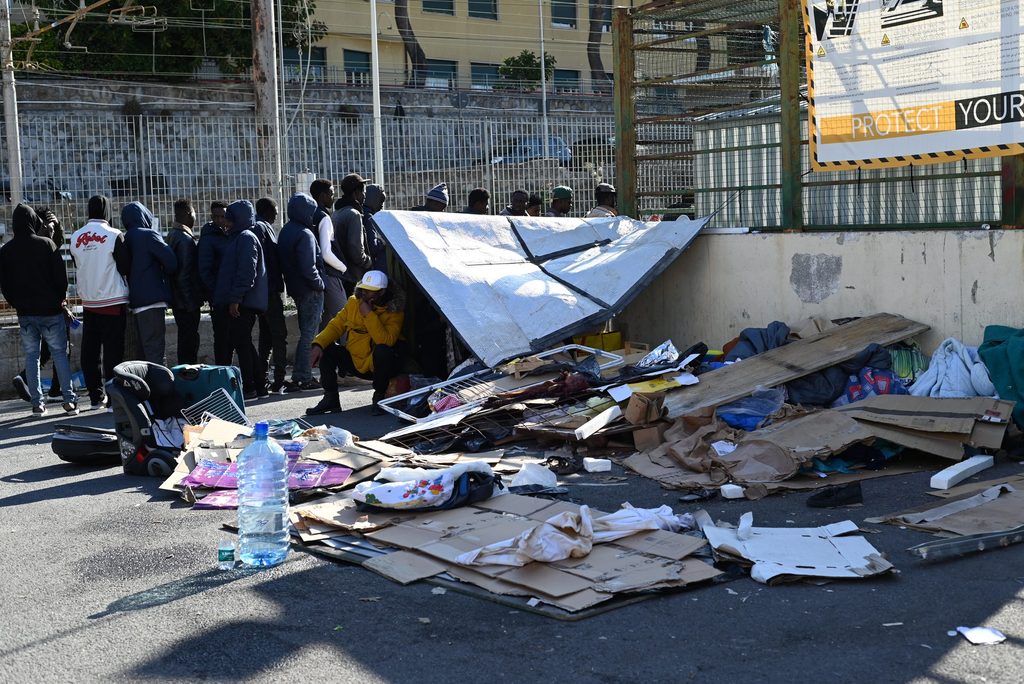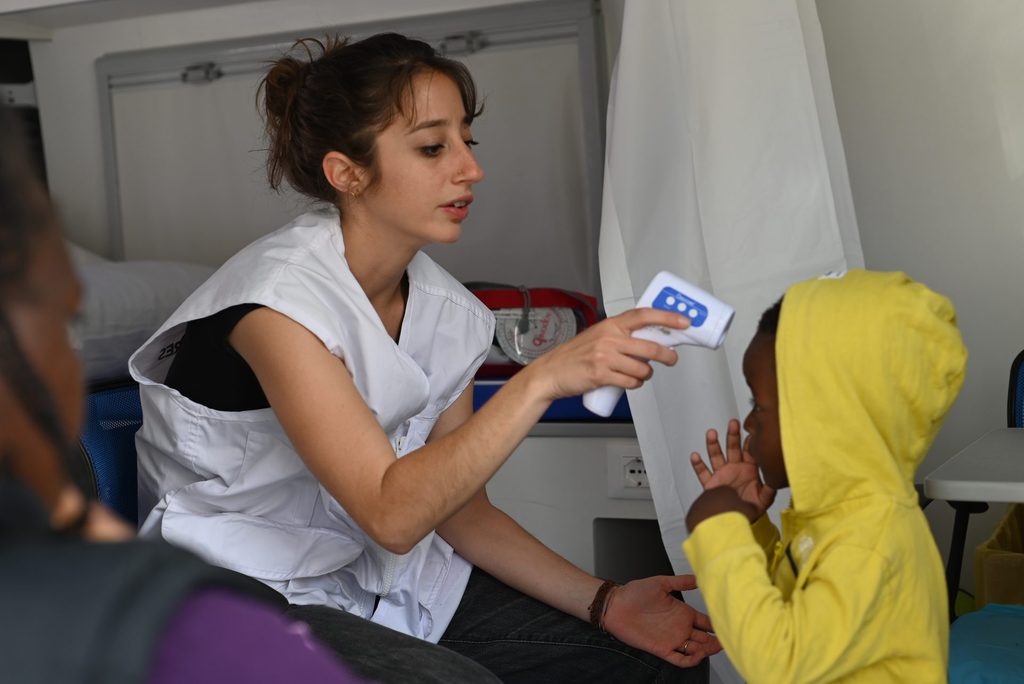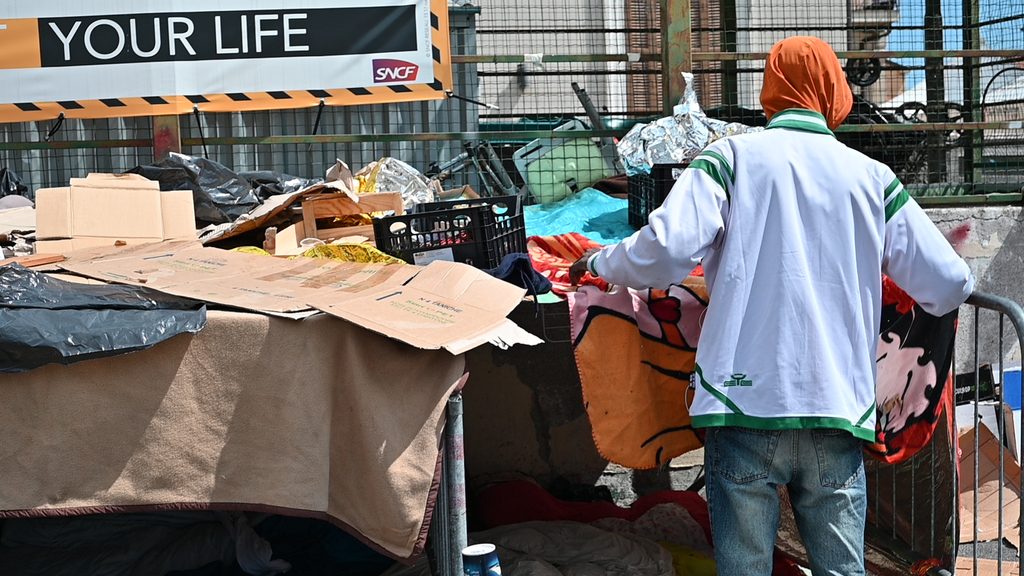Asylum seekers and refugees are systematically pushed back at the Italian-French border by French police and left without adequate shelter and limited access to healthcare in Italy, the latest Medecins Sans Frontières (MSF) report documents.
The new report, entitled 'Denied Passage – The continuous struggle of people on the move pushed-back and stranded at the Italian-French border', details the often violent and inhumane treatment and arbitrary detention that asylum seekers and refugees face.
In the report, the international medical organisation documented the conditions reported by hundreds of people in transit in the city of Ventimiglia, in northwestern Italy, attempting to cross the border into other European countries.
"Our team has witnessed the indiscriminate pushback of extremely vulnerable people by the French police, regardless of their individual circumstances and without proper assessment," said Sergio Di Dato, MSF project coordinator in Ventimiglia.
Between February and June 2023, MSF provided medical treatment or orientation to 320 patients in its mobile clinic in Ventimiglia for people in transit.
Procedural violations
Among them, 215 patients reported acute conditions, including skin, respiratory and gastrointestinal conditions. They also reported musculoskeletal complaints and injuries, and 14 had chronic illnesses such as diabetes and cardiovascular disease. MSF also provided health promotion and social-medical group sessions to 684 people.
Of the 1,004 people assisted by MSF, 79.8% said they had previously tried to enter France, making multiple attempts, only to be pushed back at the French border. This includes men, women and children who, after fleeing their countries of origin and making very dangerous journeys in search of safety, were once again exposed to violence, humiliation, threats and inhumane conditions in Europe.
Many people reported procedural violations when refused entry by French authorities, such as errors in their personal data, a lack of information and the absence of intercultural mediators.

Persons in transit in Ventimiglia Copyright: MSF / Candida Lobe
Vulnerable people (such as minors, pregnant women, or the elderly) are also confronted with these practices. Over a third of the 48 unaccompanied minors assisted by MSF were sent back to Italy, while several reported that they had been arbitrarily detained overnight in containers without any specific protection for women or children.
They also stated that food and water are not systematically provided, medical care is often denied, sanitation is inadequate and people are forced to sleep on the floor due to overcrowding. Additionally, during the reporting period alone, MSF staff in Ventimiglia identified at least four cases of traumatic family separation during pushbacks.
"We were stopped by the police in Nice yesterday," Jean from Ivory Coast told the MSF team in Ventimiglia. "My wife is pregnant. She was taken to hospital because she passed out while they handcuffed her. My two-year-old son and I were taken to the Border Police station in Menton. We spent the night in the cold and this morning we were pushed back and brought to Italy, but we have no news of my wife."
Prioritising containment over human rights
Access to adequate shelter, healthcare, clean water or sanitation is extremely limited for people passing through Ventimiglia. Despite the recent opening of two new 'first aid centres' in the city (Punto Assistenza Diffusa – PAD), where extremely vulnerable migrants pushed back from France can find shelter for several nights, dozens of transiting people are still forced to sleep on the street or in makeshift shelters.
Two of the four promised PADs are still not functioning and basic services such as housing, healthcare and legal support are provided by local associations and civil society. Skin diseases, gastrointestinal, urinary and upper respiratory tract infections are just some of the conditions recorded by the MSF team, often a direct result of poor living conditions.
"It is critical that people in transit, regardless of their legal status, are entitled to comprehensive protection and services that meet their needs," said Di Dato. "The bottleneck that has emerged in Ventimiglia is not isolated, but rather reflects the broader trend of European migration policies that prioritise containment and securitisation over fundamental rights and international protection."

Persons in transit in Ventimiglia Copyright: MSF / Candida Lobe
MSF is therefore urging Italy, France and other European countries to "take all necessary measures to prevent further damage to these vulnerable population groups."
In particular, MSF is calling for an end to degrading and inhumane treatment, systematic and arbitrary pushbacks and detentions, and the use of force.
Moreover, they are asking for countries to ensure humane and dignified treatment, access to healthcare and decent living conditions, and safe and legal passage for people seeking help and protection in Europe. Finally, they are asking for all children to be guaranteed the right to seek asylum on European territory.
What about Belgium?
While Belgium does not use physical force to push people back, the country did set up a deliberately complex system, designed to deter people. It does not offer refugees the protection they are entitled to, by creating too few places and insufficient access to aid and healthcare.
In Belgium, those applying for international protection are "victims of a policy that denies them protection, shelter and access to basic services to which they are legally entitled for months before being placed in a centre," said MSF.
"Every asylum seeker should receive shelter from Fedasil, but this has not been the case for two years. As a result, thousands of people find themselves on the streets, in squats or in homeless shelters."
Related News
- 'Systemic failure': European court once again condemns Belgium for asylum crisis
- World Refugee Day highlights continued human rights violations
- EU migration pact 'disastrous' for human rights, Belgian NGOs warn
Additionally, these people are also not vaccinated upon arrival, which can lead to diphtheria, measles and other preventable diseases such as scabies – diseases that spread quickly in the living conditions to which asylum seekers are subjected.
"The Belgian government very consciously exposes people on the move to inhumane, illegal situations. Once again, civil society organisations have to take over the tasks of the State," MSF said. "Due to the inadequate system, thousands of people are on the street and we are heading straight for a third crisis winter in a row for the Belgian asylum policy."

